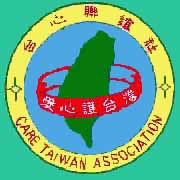Taiwan Struggling for Independence:
A Historical Perspective
By Tsai Pai-chuan and
Chi-ming Ng
Conclusion: Taiwan for the Taiwanese
- ¡@
In retrospect, the past some 400 years have witnessed a Taiwan that served different purposes of different foreign regimes: "a good milking cow" for the Dutch VOC, a military base for recovering the Ming Dynasty for the Tungnin Kingdom, a protector of the Chinese coastal provinces for the Ching Dynasty, a base for the farcical Republic of Formosa to preserve Taiwan for the Ching Dynasty, a military base again for the Southward Adventure of the Japanese Empire, a haven for the corrupted exiled Nationalist Chinese regime and an unsinkable aircraft carrier for the U.S. strategic deployment to contain the Communist China until 1979.
- ¡@ The PRC has been repeating its territorial claim that Taiwan is a part of China. Now let us look at the history for the truth. Not long after Taiwan had been annexed into the Ching Dynasty, Emperor Yung Cheng claimed in 1722 that "Taiwan has never been a part of China since time immemorial." In signing the Treaty of San Francisco in l951, the defeated Japanese Government agreed to give up Taiwan, the Pescadores and other related islands without having specified any country to which the sovereignty of Taiwan would be reverted. Under such circumstances, Taiwan naturally belongs to the Taiwanese. This opinion is fully supported in 1993 by Dr. Peng Ming-ming, the betrayed DPP presidential candidate, who pointed out that there is no international document indicating that Taiwan is a part of China.

- ¡@ Furthermore, that a majority people on Taiwan are of ethnic Chinese does not necessarily mean that the ancestors of those Taiwanese immigrated to Taiwan for the mere purpose of expanding the territory of China. Instead, what those ancestors had in mind was to seek a "brave new world" that offers better life and more opportunities, just like what the ancestors of the existing U.S., Australian and New Zealand citizens as well as the existing Afrikaners and Indians in South Africa had hundreds of years ago.
- ¡@ Whether on a de jure or de facto basis, Taiwan meets all the requirements of an independent nation with independent sovereignty, definite territory, effective government and a certain amount of population other than a clear official name. It is universally acknowledged that only Beijing can represent China. Taiwan's calling herself as the "Republic of China" and claiming to represent the whole China is not shared by a majority of other nations in the world.
- ¡@ Another question is the national policy of "there is one China only and Taiwan is a part of China," which echoes the stated policy of the PRC and thus provides the latter with an excuse to annex Taiwan. All in all, if Taiwan desires to become a truly independent nation, on both the de jure and de facto basis, it has no other choice but to rid itself of the ghostly mask, i.e., the official name of "Republic of China," renouncing her national policy of reunifying with China and denying that it is a part of China, lest Taiwan should be regarded as a "renegade province" of China. In fact, all the confusions and problems will be dissolved automatically as soon as the official name "Republic of Taiwan" is adopted.
- ¡@ Lastly, the most significant, but not the least obstacle to Taiwan independence is the military threats from the PRC. Admittedly, the PRC may be a major power and has the ambition to invade Taiwan. But military powers cannot alone be the decisive factor. People's will to defend Taiwan is in fact all the more important. Cases in point are many, like France were expelled from Algeria, the U.S. and then China from Vietnam, the former U.S.S.R from Afghanistan, Russia from Cherchenia and the former European colonial powers from Africa and Asia. If China intends to improve her international political image, she had better mind its own business, keep its hands off Taiwan and respect the human rights of Tibetans and Ouigurs in East Turkistan.
- ¡@ The PRC has been repeating its territorial claim that Taiwan is a part of China. Now let us look at the history for the truth. Not long after Taiwan had been annexed into the Ching Dynasty, Emperor Yung Cheng claimed in 1722 that "Taiwan has never been a part of China since time immemorial." In signing the Treaty of San Francisco in l951, the defeated Japanese Government agreed to give up Taiwan, the Pescadores and other related islands without having specified any country to which the sovereignty of Taiwan would be reverted. Under such circumstances, Taiwan naturally belongs to the Taiwanese. This opinion is fully supported in 1993 by Dr. Peng Ming-ming, the betrayed DPP presidential candidate, who pointed out that there is no international document indicating that Taiwan is a part of China.

 |
| CARE TAIWAN ASSOCIATION |
| 5 Floor, #10 Alley 9, Lane 23, Sec. 5, Nanking East Road, Taipei, TAIWAN |
| TEL:886-2-715-7205 FAX:886-2-7128292 |
 |
 |